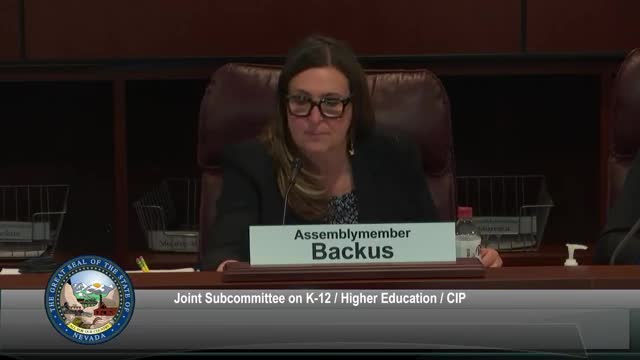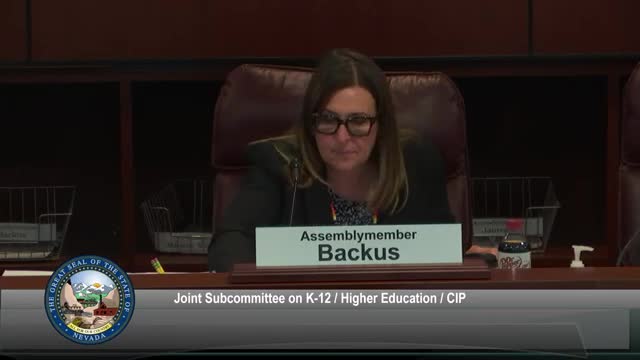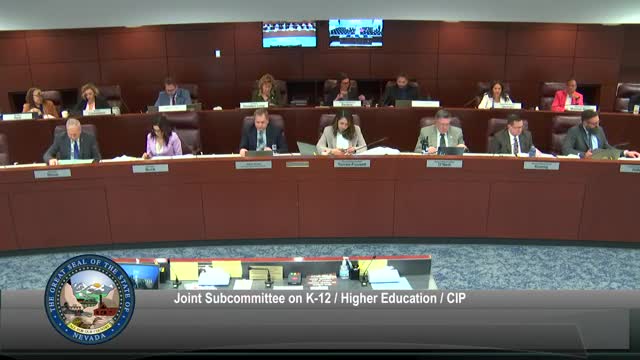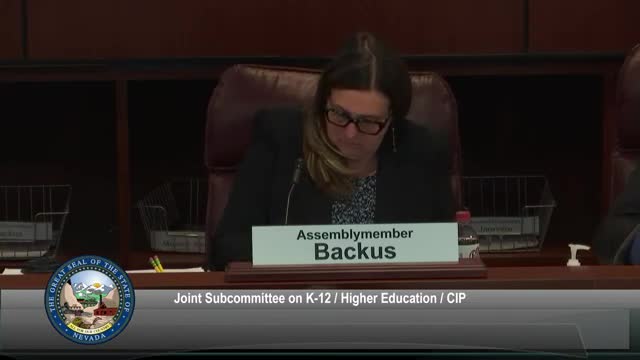Article not found
This article is no longer available. But don't worry—we've gathered other articles that discuss the same topic.

Subcommittee requires reconciliations for Teach Nevada and awards funds for teacher advancement program

Legislative panel redesigns incentives for teacher candidates, ties some funding to wage‑assessment revenues

Nevada subcommittees fund pre-K seats, consolidate literacy funding, cut some federal grants

